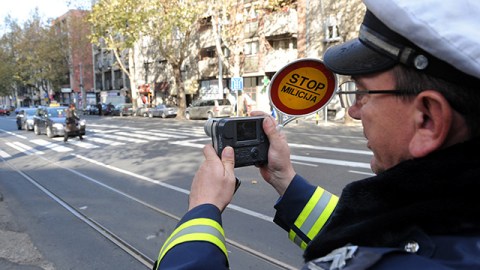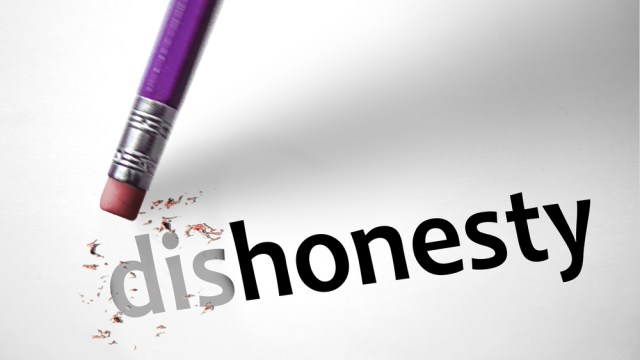Cops Film Us All The Time. Why Can’t We Film Them Again?

Las Vegas. A young man, about 22, fist pumps an oversized beer mug out of the passenger seat window. Rookie move. A strip cop spots the amateur, flicks on his lights. As two drunk men and a drunk woman exit the car, the driver pleads his case: he’s a friend, they had called to pick them up.
The cops pull the cameras aside. Good cop reminds viewers the kids did the right thing, even after he’s told the driver that it’s illegal to have an open container in the car, no matter that he’s sober. Vegas rules are confusing, so good cop lets anxious crew go. The tension released, kids ask if they can have the cup back. Good cop laughs, drains it on the ground, hands it over.
Vegas Strip is produced by Morgan Langley, the co-creator of America’s introduction to police-themed reality television, COPS, currently in its unprecedented 26th year. The only other programs that survive that long are soap operas, which makes sense given that COPS features similar dramatic flourishes.
One major criticism of COPS has been its focus on low-level crime, mostly among the poor. The response was that in order to produce enough footage to keep the show successful, these are the most prominent crimes, a trend that continues on Vegas Strip, albeit often with different characters: vacationers drinking too much; pickpockets; stripper problems.
Yet what is not vocalized as loudly is the question of why we’re filming these incidents in the first place. The official response is public safety and awareness. Police are allowed to film anything they’d like in the line of duty. I’m not debating whether or not this is fair, given that it helps identify people who might flee the scene or initiate trouble. But what about when the camera is turned the other way around?
The ongoing battle of whether or not citizens are allowed to film police is heating up again. Ironically the same excuse can be made as to why cops need to be filmed as why they film us. Time and again, they don’t see it that way.
Last week a federal court ruled that we are, in fact, constitutionally protected under the First Amendment when filming police activity. The ruling is only binding in four states at the moment, as well as Puerto Rico.
And yet the rules of filming are contentious, to say the least. Journalist Carlos Miller has been arrested three times for filming police encounters. He’s always (eventually) been acquitted, as he knew he was within his legal limits. Still, the bureaucratic process is exhausting him. Standing up for your rights can be tiring.
In a time when ‘citizen journalism’ is possible in every city on the planet, and every phone is equipped with a camera, we film pretty much everything. In fact, we film way too much, such as when we fiddle with our smartphone during our kids’ dance performance instead of actually watching them perform. But when it comes to actions in which justice can be served by the observer’s frame, it is a necessary function of a democracy to investigate how said justice is actually working.
Power structures are not in favor of this. The emerging ‘ag-gag’ laws are one prominent example: it is illegal not only to film potential animal abuse inside factory farms, you can’t even sit on the road, which is public property, and film the building. These laws have been in and out of courts, at times gaining traction.
In March, activists in North Carolina were told to turn around when attempting to film Duke Energy’s potentially toxic practices of dumping coal ash. The river keepers were boating on a tributary in Cape Fear River—again, public property. Even though within their legal rights, they were not allowed to get any closer once the police stopped them.
Police work is hard. I would not have the stomach for it, or the courage it takes to put your life on the line every day. Respect does not equate to submission, however. If cops are allowed to film us whenever they choose, especially when something as ludicrous as television ratings is involved, no citizen should ever be arrested for turning the lens around, provided they are not interfering with the investigation. We’ve witnessed the power of the camera on many occasions over the past two decades. If that’s what it takes to keep justice alive, we need to keep the cameras on.
Image: bibiphoto/shutterstock.com




